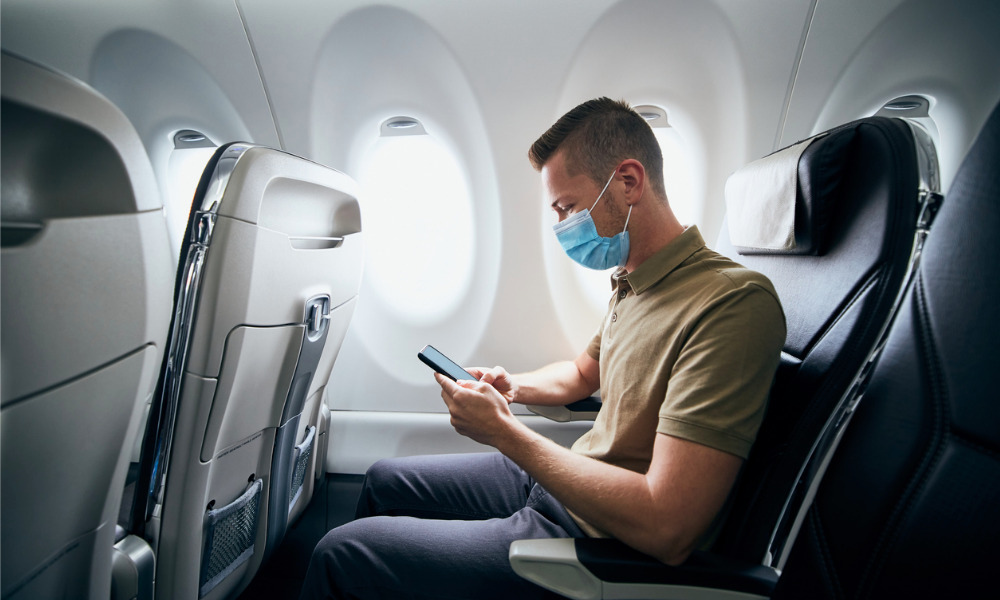'There's no hoops to jump through anymore'

With recent changes announced by the federal government, that foreign visitors will no longer have to be tested for COVID-19 before entering the country, this might go some way toward solving the labour shortage and business mobility crisis, says an immigration lawyer.
“Many of our clients have employees who travel in and out of Canada on a regular basis. The COVID rules, including pre-arrival testing, have made frequent travel quite complex and costly,” says Zaynah Marani, Managing Partner and Canadian Immigration Practice Lead at Marani Law LLP in Toronto. “Removing the testing requirement is going to be a big change and I would anticipate that there will be an influx of temporary foreign workers as a result.”
The changes took effect on April 1 and applied to both land and air border crossings.
While visitors to Canada still have to show proof of government-approved vaccination (two doses for most manufactures, one dose for Johnson and Johnson shots), some may be subjected to testing upon arrival, according to Marani.
“Randomized testing upon arrival will still remain but aside from that and proof of vaccination, the rules have relaxed quite significantly.”
During the most challenging parts of the pandemic, workers had to get tested, and then isolate themselves before being allowed into the country, says Marani, which caused great grief for busy and frequent travelers.
“Those temporary foreign workers who don’t require a visa to enter Canada can apply for their work permits at the border upon arrival. These changes will result in the port of entry application process being much more straightforward. I would anticipate, that, particularly between Canada and the U.S., it will mean a lot for mobility again.”
As well, the rules banned completely some visitors from certain high-risk countries such as India, which in some cases, resulted in some strange scenarios on flights into Canada.
“We had a lot of people from India, for example, having to fly down to Mexico first, and then flying from Mexico to Canada. Many international travelers had to reroute around the world, ” says Marani.
The federal government also announced other changes to the Temporary Foreign Worker (TFW) Program in order to address the labour shortage and allow more workers into Canada.
Floodgates open?
For certain industries, such as high tech, this could open up the floodgates, according to Marani.
“I think you’ll see more business travelers, people coming in for conferences, etc., because are so few hoops to jump through now.”
This should also be beneficial to those workers who regularly cross back and forth between Canada and the U.S. for both business and pleasure, she says.
“Throughout the pandemic, there have been some exceptions to testing for workers who cross the border daily, for example between Windsor to Detroit, or Buffalo to Niagara. This most recent change will be particularly welcoming to border town residents who, pre-pandemic, were intertwined on both sides of the border. They will once again be able to cross back and forth for gas, visits, shopping, etc. without having to undergo pre-arrival tests.”
Quebec also announced some changes to its pilot TFW program.
This news should be welcome news for many who regularly go back and forth via airplane as well.
“I’d say it would be really pretty much business as usual as long as you’ve got your proof of vaccine. You still have to download that ArriveCAN app and fill it in but even that’s much less complicated than it was before,” says Marani.
The advice to business travelers, says Marani, is to make new travel plans while the border is open.
“I hope that it doesn’t go back to what it was before but who knows what we’re going to have to do from a safety measure; we’re already hitting the sixth wave o it’s really important to take advantage of it while things are open. We’ve seen that we can’t predict what’s going to happen. I never thought borders would just shut and they did so it’s important while things are up and running and open and just take that advantage.”




